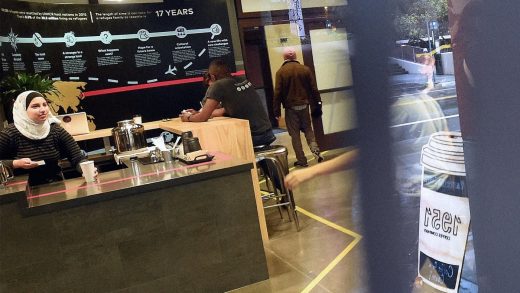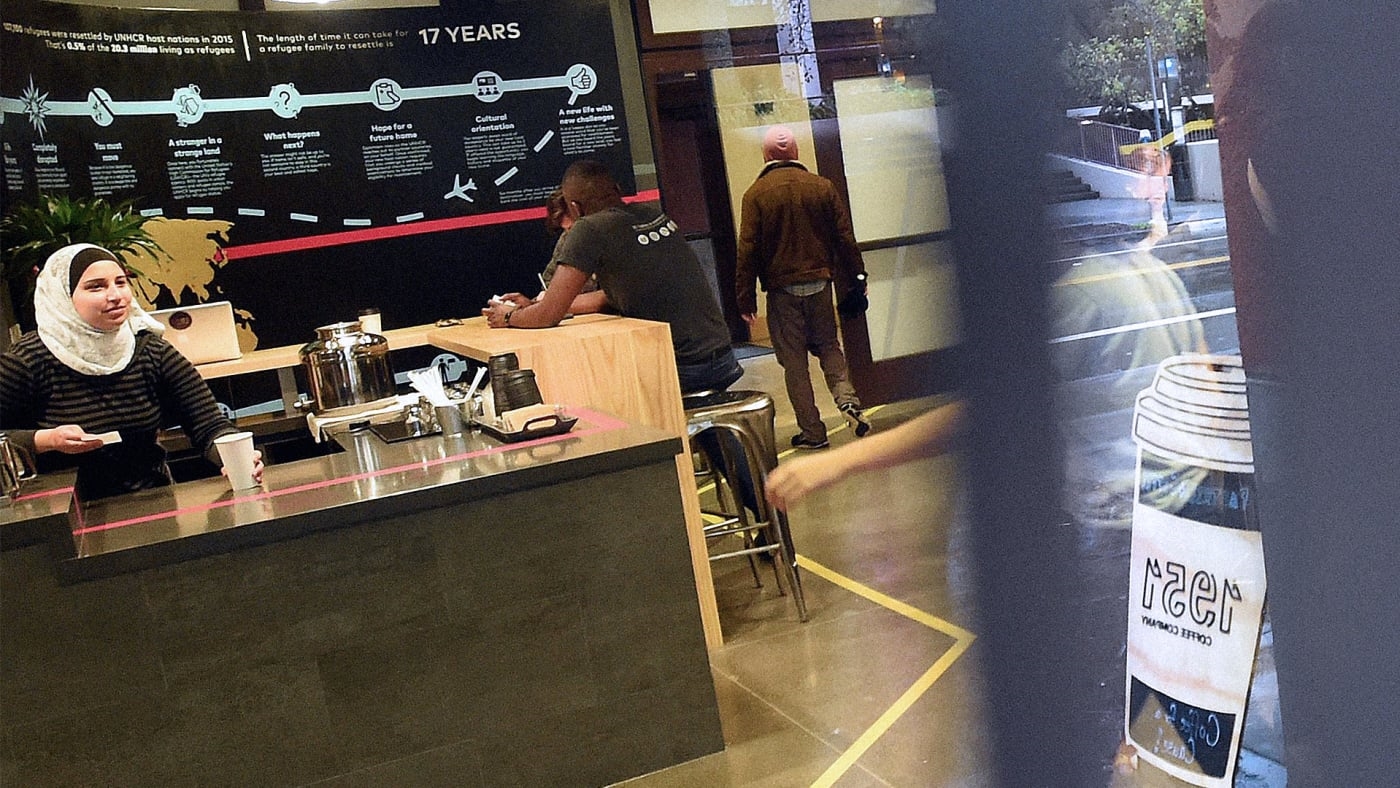Here’s yet another business benefit of hiring refugees
When an Atlanta-area manufacturer was struggling to keep workers on staff, they turned to a new pool of applicants: refugees. Engent, which makes headlights for Tesla cars, started working with a staffing agency called Amplio Recruiting, which connects refugees with full-time jobs, in 2016.
One of the first hires, a refugee from Afghanistan named Rafi who had worked as a translator for the U.S. military–and then had to flee after the military withdrew and insurgents bombed his house because he helped the Americans–took the job soon after moving to the U.S. Nearly two years later, he’s still there, and is now a shift supervisor at the company.
“Rafi is just an example of a community of people who are dependable and loyal and disciplined,” says Chris Chancey, CEO of Amplio Recruiting.
In the staffing industry, Amplio says that retention rates are typically low, and three months after placing someone in a job, there’s only a 40% chance a worker will stay. Amplio’s rate is around 70%. A new report looking at companies that hire refugees saw a similar pattern–of the companies surveyed, 73% had higher retention rates for refugees than for other employees. Among a handful of companies that shared detailed internal data with the researchers, the turnover rate for refugees was 7% to 15% lower than for the workforce overall.

“We hope that businesses look at this report and realize that there is a significant business dividend to hiring refugees even with modest investments upfront,” says Gideon Maltz, executive director of the Tent Partnership for Refugees, which commissioned the report. The foundation, launched by Chobani CEO Hamdi Ulukaya, works with companies to support refugees. (On the other hand, refugees might be staying longer in a job like hotel housekeeping because language barriers keep them from other work, or because and not being able to find anything else, not because they’re particularly more loyal than other workers.)
For businesses, better retention rates save money. A 2012 study estimated that if a worker leaves and they are replaced, that costs around a fifth of the worker’s annual salary. In the jobs studied in the report–including jobs in hotels, factories, and meat packing plants–workers typically earned around $13 an hour. For companies, that means saving $5,200 a year for each worker who doesn’t need to be replaced.
The report looked at the low-wage industries where refugees often find jobs, but retention rates may not be as high across all industries. (They also vary by company, with companies that provide more support for different languages, for example, having more success with retention.) Figure 8 Investment Strategies, a small firm that hires refugees as financial advisors, has experienced some challenges retaining workers because of the unique struggles refugees face in their new lives.
“The things that cause somebody to leave a job–it’s usually either that life is messy or that you get a better job,” says Lisa Cooper, president of Figure 8 Investment Strategies. “I think it’s fair to say that a lot of people whose lives have been disrupted in horrible ways have some messiness to deal with, maybe more than people who haven’t had a refugee experience. We’ve seen that.” The company has also seen people struggle with a loss of confidence after going through the trauma of leaving their homes. “For people who are working at a professional level where their confidence has been a critical success factor in their work, sometimes that goes away,” she says.
Still, the company has also witnessed the benefits that companies in the report saw–people who are refugees tend to have a stronger sense of loyalty to a job. “Someone who has been forced to flee their country because of violence or persecution and is now in a new country is really eager to build a new life and settle down and provide for his or her family,” says Maltz. “I think then when a company offers them a position, I think refugees really crave stability, and I think they really feel a sense of loyalty to companies that might have taken a chance on them.”
Though the report focused on retention, and noted an additional benefit of refugees tending to refer other workers, the benefits of working with refugees are broader. The financial advisors that Cooper hires use their language skills and cultural understanding to research international investment opportunities. Going through the refugee experience has also made them more resilient to challenges at work. “When the market’s down, you have the strength of character to say, okay, that’s not good, but let’s keep going,” Cooper says. “We have a job to do.”
The Tent Partnership for Refugees wants to use the report to encourage more companies to consider hiring refugees, following the path of companies like Starbucks and WeWork, which have made large commitments to add refugees to their staff. (Starbucks has pledged to hire 10,000 refugees over five years in the countries where it operates, and WeWork plans to hire 1,500 refugees.)
It also hopes that as companies recognize the benefits of working with refugees, they may give more political support to resettlement. “In the United States right now, the current government has made significant efforts to reduce refugee resettlement to historic lows,” Maltz says. “We really hope to help to build a constituency that appreciates the business and economic contributions of refugees, and to help over time, over the years ahead, to steer the policy discussion back to allowing more refugees to resettle in the United States.”
(31)



